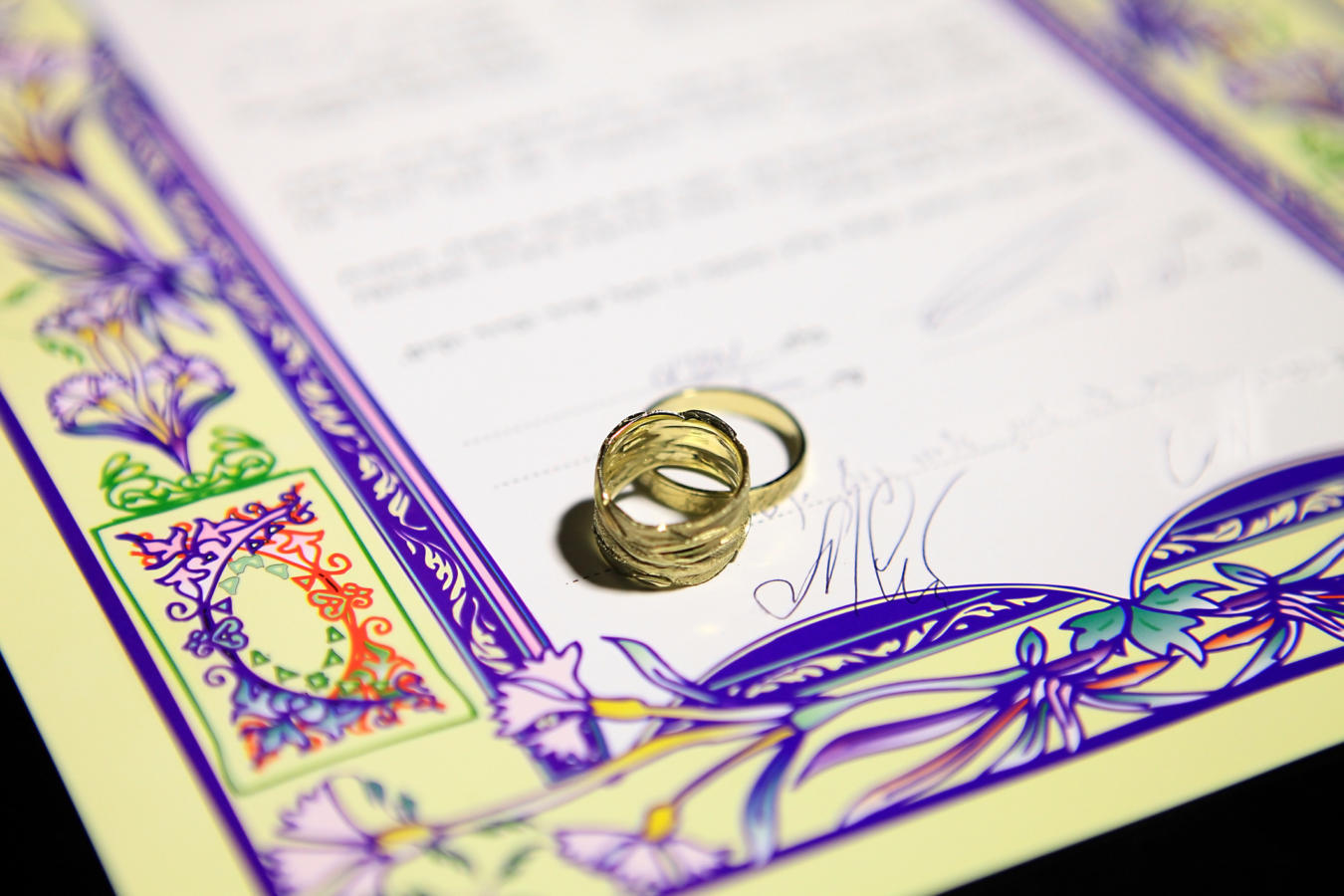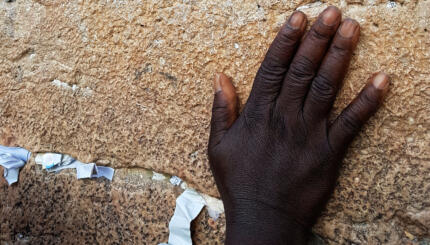The traditional text is far from a romantic declaration of love and devotion. Rather, it outlines a husband’s obligations to his wife–in largely financial terms. Today, a host of alternative ketubah texts exists, and in many cases, couples planning a wedding are able to choose a ketubah text that best reflects their values and their goals for marriage.
Are you planning a Jewish wedding? Let us help out! Sign up for Breaking the Glass, an email series that will help guide you to the wedding that’s right for you!
Ketubahs that Mention Love
Clergy in the more liberal Jewish movements (Reform, Reconstructionist, Renewal) typically use ketubah texts that focus on the spiritual commitments of marriage. There is a lot of variation in the texts that exist, but most outline a couple’s mutual responsibilities to one another, as well as responsibilities to the Jewish people, and to the entire world–without mention of technical and financial legalities. Most of these texts are written in modern Hebrew and English, rather than the traditional Aramaic, and many can be used in interfaith weddings. For example:

Help us keep Jewish knowledge accessible to millions of people around the world.
Your donation to My Jewish Learning fuels endless journeys of Jewish discovery. With your help, My Jewish Learning can continue to provide nonstop opportunities for learning, connection and growth.
· In Ritualwell’s New Ketubah text, both bride and groom promise to cherish and honor one another; to strive to achieve openness and mutual fulfillment; and to work to perpetuate Judaism and the Jewish people (full text here).
· The Brit Ahuvim, or Lovers’ Covenant, written by Rachel Adler, a prominent Jewish feminist thinker, draws on biblical verses about covenant, calling marriage a covenant of distinction; a covenant of devotion; a covenant of mutual lovingkindness (full text here).
· This egalitarian ketubah text by Rabbi Gordon Tucker of Temple Israel Center, a Conservative synagogue in White Plains, New York, outlines precisely mutual obligations for the groom and bride. Unlike the previously-mentioned texts, this ketubah maintains the legalistic nature of the traditional ketubah and aims to be a halakhic (Jewish legal) document–while omitting all monetary provisions that appear in traditional ketubot (full text here).
Some DIY couples choose to write their own ketubah text. This creative approach — not all that different from the Christian practice of composing wedding vows — can be a meaningful way for a couple to express their personal goals and dreams for their marriage.
Ketubahs for LGBT Weddings
Now that same-sex marriage is legal throughout the United States, and rabbis from all the non-Orthodox movements officiate at LGBT weddings, a variety of ketubah vendors now sell appropriately worded ketubot for gay and lesbian couples. For more LGBT wedding resources — including sample ceremonies and ketubah language — we recommend visiting Marriage Project, a resource guide compiled by Keshet, a national organization that works for full LGBTQ equality and inclusion in Jewish life.
Finding What’s Right For You
If you have already chosen a wedding officiant, be sure to consult with him/her about the text of your ketubah. Many rabbis, cantors, and officiants prefer or require a certain type of text. Orthodox rabbis typically require the traditional Aramaic ketubah text and the nearly universal practice among Conservative rabbis is to use a Conservative ketubah, which is identical to the traditional ketubah text with the exception of one added sentence, known as the Lieberman clause. The purpose of this clause, which was accepted by the Conservative Rabbinical Assembly and the Jewish Theological Seminary in 1953, was to help solve the problem of agunot (women whose husbands refuse to grant them a religious divorce and who are thus prohibited from remarrying). If your officiant requires a certain Aramaic text, you can always raise the possibility of also incorporating an English text that speaks more to your feelings about your marriage.
If you haven’t yet chosen your officiant, consider asking about ketubah requirements–and voicing your own preferences for your ketubah–as you speak with potential clergy. This can help you find the right person for your ceremony.
Once you know what kind of ketubah text you want, you can browse through ketubah designs at your local Judaica store, or online at one of the many Internet ketubah retailers. Most ketubah designs can be customized to include your text of choice. There’s no requirement that your ketubah be a beautiful work of art, in fact from a Jewish legal perspective it can be written on a paper napkin. But especially when you are giving real thought to the text of your ketubah, it can be meaningful to choose a ketubah design that you’ll want to frame and hang in your home–a testament to your shared values and a memento from your wedding day.




